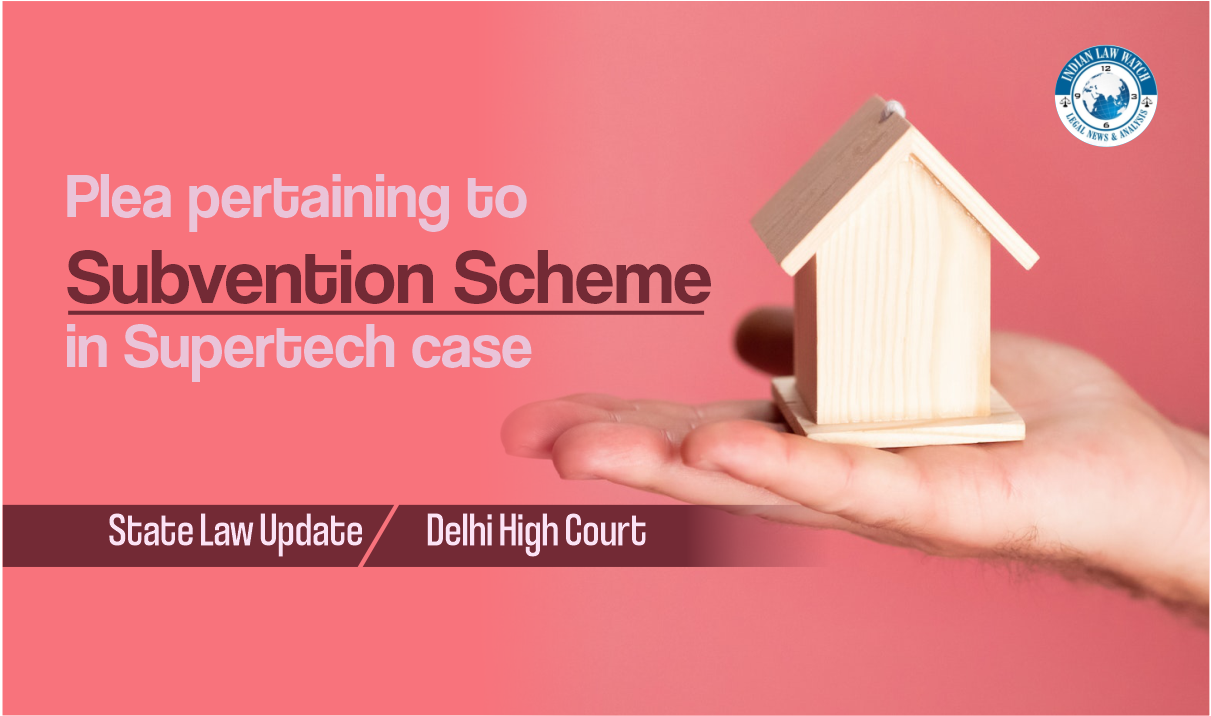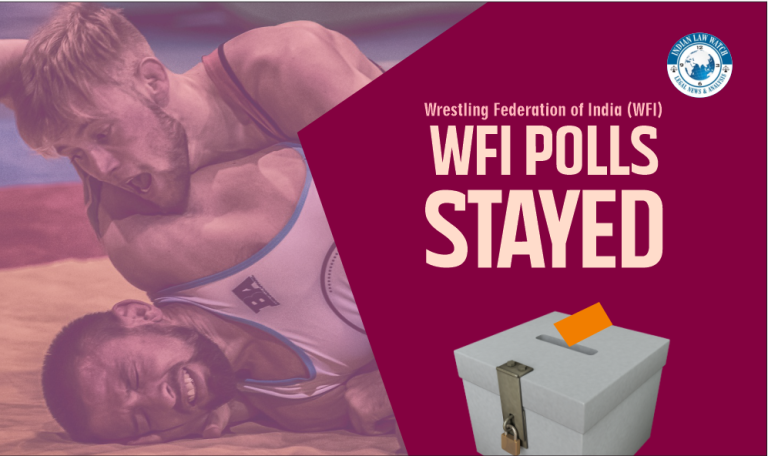
Delhi High Court rejects homebuyer’s plea in Supertech case pertaining to Subvention Scheme, homebuyers to avail alternate remedy.
The Hon’ble Delhi High Court vide its order dated 14.03.2023 in the matter titled Supertech Urban Homebuyers Association (SUHA) Foundation vs Union of India & Ors. (W.P (C) No. 9491/2020) has dismissed a batch of Writ Petitions wherein various Homebuyers were aggrieved by the actions of the Government Authorities, Banks and Builder regarding a Subvention Scheme. The petitioner in this matter is an association by the name of “Supertech Urban Home Buyers Association” (SUHA) Foundation consisting of 2500 home buyers. The other parties are Supertech Limited is a builder and the banks/financial institutions.
Sub-vention scheme and call to pay EMIs without Builder’s Obligation to Deliver
The facts of the matter in these various Writ Petitions were relating to a Subvention Scheme offered by the Banks and the Builders. Subvention scheme is a three-party agreement between the buyer, builder, and lender. When a buyer books a property, he/she pays 5%-10% of the money upfront. The bank pays the remaining amount to the developer as a form of a loan. The bank disburses this loan to the project developer once the construction proceeds. The homebuyers alleged that the Banks and the Builders floated a Subvention Scheme under which the homebuyers were informed that they will have not have to pay any Pre-EMIs and EMIs till the Builder offers them the possession of the flats booked by them in a project and it will be the Builder who will pay the Pre EMIs and EMIs on behalf of the Homebuyers. The three parties i.e., the Bank, Builder and the Homebuyer also entered into a Tripartite Agreement to record their understanding for the same. The Builder and the Homebuyers had also entered into a separate Builder Buyer Agreement as well.
As per the agreements the Builder was contractually obligated to deliver the possession of the flat to the Homebuyers within 36 months from the date of signing of the Tripartite Agreement. However, the Builder failed to deliver the possession of the flats booked by the Homebuyers under Subvention Scheme within 36 months and the Banks began demanding the EMIs from the Homebuyers. The Homebuyers began paying the EMIs to the Banks as well under the apprehension that there CIBIL score will be affected by the same. However, the National Housing Bank and the Reserve Bank of India has issued circulars/guidelines/notification regarding the Subvention Scheme, wherein Banks and Housing Finance Companies were informed that in a Subvention Scheme they should disburse the loans based upon the stages of construction of the project. Thus, the homebuyers had filed the said Writ Petitions before the Hon’ble Delhi High Court wherein they have alleged the violation of the said circulars/guidelines/notifications issued by National Housing Bank and the Reserve Bank of India.
Why did the court refused to interfere?
The Hon’ble Delhi High Court held that the said Writ Petitions are maintainable as per the principle laid down by the Hon’ble Supreme Court of India in Federal Bank Limited case wherein if a private entity is discharging a public duty a Writ Petition can lie against such private party as well. The Hon’ble Delhi High Court further observed that the Respondents were under a liability to discharge their functions under a statue referring to the guidelines/circular/notifications issued by the Reserve Bank of India and National Housing Bank, thus the Writ Petitions filed by the Homebuyers before the Hon’ble Delhi High Court were held to be maintainable.
However, in the instant case, not only the rights of the petitioners are flowing from private contract, but the complex and disputed question of facts are involved and the parties are not remediless. Alternative forums are already in place. Any interference by the writ court under the facts of the present case would amount to usurpation of powers vested with the respective forums. Such an exercise is not permissible unless extraordinary circumstances exist which are apparently non-existent in the instant cases.
The cases in hand clearly indicate that the homebuyers are claiming their rights mainly governed by the terms of the contract which they have entered into and to enforce the terms of the contract, no writ or order can be issued under Article 226 of the Constitution so as to compel the authorities to remedy a breach of contract pure and simple. Reference can be made to the decision of the Hon’ble Supreme Court in the case of Bareilly Development Authority.
However, the Hon’ble Delhi dismissed the said Writ Petitions on the ground that although the said Writ Petitions are maintainable but the same are not entertainable as the Homebuyers can avail alternative remedies like RERA, NCDRC, NCLT, thus any interference by the Hon’ble Delhi High Court would amount of usurpation of power vested with these respective forums. The Hon’ble Delhi High Court further held that as far as the matter pertaining to the breach of RBI Circulars the same is a question of fact that can still be gone into before an appropriate court.

The cases in hand are purely contractual in nature. As has been noted, the “builder-buyer agreement” also categorically provides for an arbitration clause, whereby, any dispute pertaining to the said agreement was to be referred to arbitration. There are various statutes such as RERA Act, Consumer Protection Act, Insolvency and Bankruptcy Code, 2016, SARFAESI Act etc., where the petitioners can raise their grievances. It would not be advisable to entertain a writ petition under Article 226 of the Constitution under the facts of the present cases.
The case highlights concern of buyers about the violation of the RBI and National Housing Bank guidelines and the disbursement of loans by the Banks to the Builder under the Subvention Scheme were not in consonance with the RBI and National Housing Bank guidelines. The court has mentioned that the same can be dealt before an appropriate court.





